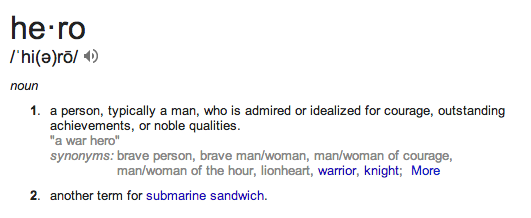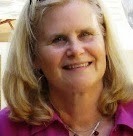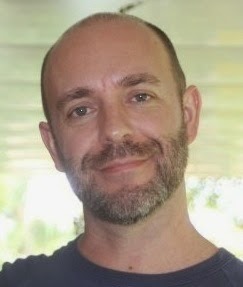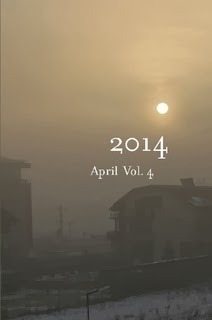Guilie Castillo-Oriard's Blog, page 18
April 13, 2014
#atozchallenge: Love The Way You Lie
Tell all the truth but tell it slant,
Success in circuit lies,
Too bright for our infirm delight
The truth's superb surprise;
As lightning to the children eased
With explanation kind,
The truth must dazzle gradually
Or every man be blind. Emily Dickinson (Poemhunter)Do you believe that ? That truth must dazzle gradually?
 2014: A Year In Stories
2014: A Year In Stories
A twelve-volume anthology published by Pure Slush Books
Truths, especially the hard ones, can be difficult to hear. By easing "with explanation kind", by mitigating and diluting, you're being considerate. Benign. Or so you tell yourself.
Where is the line, though? Where does a "slant" truth end and a lie begin? And the lies--the slanted truths--that we tell, that we feel we must tell... What does that say about us?
What lies do you tell? To what purpose?
Thanks for visiting, and happy A-to-Z-ing!
Success in circuit lies,
Too bright for our infirm delight
The truth's superb surprise;
As lightning to the children eased
With explanation kind,
The truth must dazzle gradually
Or every man be blind. Emily Dickinson (Poemhunter)Do you believe that ? That truth must dazzle gradually?
 2014: A Year In Stories
2014: A Year In StoriesA twelve-volume anthology published by Pure Slush Books
Truths, especially the hard ones, can be difficult to hear. By easing "with explanation kind", by mitigating and diluting, you're being considerate. Benign. Or so you tell yourself.
Where is the line, though? Where does a "slant" truth end and a lie begin? And the lies--the slanted truths--that we tell, that we feel we must tell... What does that say about us?
Mark Hamilton is caught in a lie by his wife. He alibis for another baseball player, telling the man's wife that Mark was out to dinner with her husband the previous night when he was not. When his wife Angela catches him in this lie, he tries to justify himself by claiming that his teammate's loyalty will result in improved performance and thus income, while telling the truth would brand him as disloyal, a label that could result in struggles to find future employment. She is not impressed. As the child of an alcoholic, she detests lying in all its forms, and she wonders if the same code applies to Mark. Have his teammates lied to her as well?MICHAEL WEBB
Trudy Polaris's husband lied to her to get her to stay in the Tyrol ... and then she becomes a tax hostage. But Trudy is a big liar anyway, so who knows where the truth sits! I don't think Trudy does!SALLY-ANNE MACOMBER
Motivations for lying are many and varied. In "Compassion" Stephen lies about his writing progress because he doesn't want Anne to catch him out. By why is that? On one level, there's the knowledge that he will be letting her down again and he wants to save her from that pain. There's also the knowledge that if she catches him, she will become verbally aggressive--this is a pattern between them--and he wants to protect himself. Perhaps the most important consideration is that by being caught, he is in fact confirming Anne's opinion that he does not apply himself, that he cannot be trusted, that he is a failure and imposter at his craft. This impulse doesn't even rise to the level of consciousness, yet it is likely the fundamental driving force of his reaction in the moment. The other considerations are mere shadow play.STEPHEN V. RAMEY
What lies do you tell? To what purpose?
Thanks for visiting, and happy A-to-Z-ing!
Published on April 13, 2014 21:30
April 12, 2014
#atozchallenge: Kiss & Tell
 2014: A Year In Stories
2014: A Year In StoriesA twelve-volume anthology published by Pure Slush BooksMy first kiss was beautiful. Maybe even Disney corny. It happened after (not during, mind you; that would've been sleazy) seeing the movie Some Kind Of Wonderful at the theater on a Thursday afternoon.
(Maybe it was a Monday. Or a Wednesday. What? It was a long time ago.)
It was soft, and intense, and long. And I was in love with the guy even before he kissed me. He was my first love, and we were together for seven years.
But, apparently, I'm a minority. At least as far as the characters of the 2014 project are concerned.
Nadia refuses to count her first kiss as the time Robbie Hill tried to shove his tongue down her throat during a spin the bottle game at school camp. So she jumps forward to when Tom McKinnon kissed her at her thirteenth birthday party, back when he still treated her like his best mate's kid sister, back long before they started going out together. That brief, unexpected, innocent brush of lips across her left cheek, that's the first kiss she wants to remember. (MANDY NICOL)
(Keep in mind that this is not (entirely) autobiographical.) Stephen first kissed Anne standing on the doorstep of an apartment house where their writing group had just met. They had been meeting in the group for more than a year, but Stephen remained oblivious to her interest. Intensely introverted, he had given up on love by this point (he was in his late twenties) and immersed himself in his work and a few hobbies, one of which was fiction writing. He saw Anne as a pleasant fellow writer with a talent for story structure. (STEPHEN V. RAMEY)
Mark Hamilton's first kiss was at 15. He was helping to unload the assistant coach's minivan at an amateur baseball tournament. He was not unaware of girls, but his concentration on athletics did not leave a lot of room for socializing. The assistant coach's stepdaughter stopped him as he was removing a long canvas bag of bats from the back of the van. She stood unusually close to him, her dusty painted toes inches from his baseball spikes, and wrapped her arms around him when he straightened up. Smelling like Pepsi, she leaned in close and pressed herself against him. They kissed, and she whispered, "Good luck today, Marky." Whether coincidence or not, he struck out 12 in 7 innings and hit a home run that day. (MICHAEL WEBB)
Luis Villalobos was ten. There was a girl he sort-of liked, sort-of hated--you know how at that age inter-gender relationships are weird like that--and one day in the school yard he cornered her in the alley between two buildings. He was after her Hershey's chocolate bar, the kind that back then wasn't available in Mexico and had to be imported from the US. But when the girl gave up the bar, he changed his mind and lunged in for a kiss instead. Well, "kiss"... The girl screamed and ran away with a bloody lip, and Luis bore a tooth-shaped bruise on his chin for the two weeks he was grounded. But the nickname Vampiro stuck for much longer than that. (GUILIE CASTILLO)
~ * ~
What was your first kiss like? Did it live up to your expectations, or did it happen before you had any expectations? What is a first kiss, anyway? Do we agree with Nadia that a spin-the-bottle mashing of lips doesn't count? And is a first kiss all that important to begin with?
Thanks for the visit, and happy A-to-Z-ing !
[You guys, I owe you an apology. I'm behind on posting, on replying to comments, on visits... I will catch up this weekend. I will be all over the internet, returning the love you've shared so generously. You're wonderful, all of you, and I'm honored every time you visit. Thank you!]
Published on April 12, 2014 06:48
April 11, 2014
#atozchallenge: Jobs R Us
 2014: A Year In Stories
2014: A Year In StoriesA twelve-volume anthology published by Pure Slush BooksDoes your occupation define you? Or does who you are define your occupation?
I submit that, in a world that relies on stereotypes, jobs become a part of society's perception of us--accurate or not. And fiction's no different. The work that a character does becomes a cornerstone of the image we create of this person.
Am I right or am I right?
These are the jobs some of the 2014 characters have. Unconventional, borderline stardom, eccentric, mundane. What kind of person do you think they are? Share in the comments; I'd love to know.
MATT POTTER: Morgana Malone starts the series on her first day (Jan 25th) in a new volunteer position: guide in an art gallery. In February she's working as the Admin Junior in her ex-husband's therapy practice, 'up-managing' the Admin Senior, the ex-porn star Zebadie who is set to marry Morgana's ex-husband Grigor. (Zebadie can't use a computer for the patient billing while Morgana can.) Through the middle of the year she is unemployed and spending too much time on the internet. Then she takes a job delivering junk mail for 'Knights of the Polish Cross' sauvignon blanc. Later, under family pressure, she starts work in the family business, a bakery... and just what she is doing by the end, in December, who knows... But the last day will be Christmas Day so it may well involve food and Christmas cheer.
SUSAN TEPPER: Pedersen doesn't make a living, he collects checks from his stint at Desert Storm. They probably discharged him on mental disability.
MANDY NICOL: Nadia is a seamstress. She loves fabric and colour and fashion and creating with her hands. She's a very good seamstress. She works from home--great idea, hey? Be your own boss, work your own hours, no commute to deal with. Except she lives with her demanding and overbearing mother so she is slowly but very surely suffocating.
MICHAEL WEBB: Mark Hamilton is an American professional baseball player, specifically a short reliever. He is not a star, but is very well compensated, and has managed to earn a good living through his career. He is a somewhat fungible commodity, valuable, but not special, someone who gets the team out of a sticky late game situation, ideally preserving a lead so that the team's star reliever can come in and earn the save and the glory at the end. His team is never specifically named, but he and his family live in Arizona full time, since his oldest son is now in elementary school.
He is uncomfortable with the fame and money that comes with so simple a profession, but he has no other really marketable skills, so he is somewhat happy to keep doing it for as long as they wish to pay him to do so. He understands the necessity of the constant travel, but he misses his family, specifically his daughter, who he barely knows because he has been gone for so much of her life. He also knows well that the attrition rate for professional pitchers is very high, so he constantly fears a career ending injury that would force him to get a real job.
STEPHEN V. RAMEY: Stephen is a writer, which at this point means he picks up a few dollars with nonfiction and editing, but is mostly focused on his fiction. The first three novels were never finished, but he's working on one now that's going to put him on the map. Anne manages a museum and volunteers with a local nonprofit. Stephen resents that she has sold out her dream. Anne resents that Stephen has sold out their marriage: if he worked part time, at least, life would be much easier.
Jobs are relevant to the story cycle, in that they provide tension between Stephen and Anne and narrative complication. Writing credentials get Stephen into the tent city and allow him to repeatedly avoid dealing with real problems. Anne's volunteer work brings them into direct conflict in one chapter.
GUILIE CASTILLO: Luis Villalobos is a tax lawyer, and a damned good one. His father is a lawyer, too; so was his grandfather, and two of his uncles. He got his first legal dictionary when he was seven, and he carried it around in his bookbag. It made him feel safe: he belonged in his family, his future was clear.
For Luis, his profession is a means to an end, and that end is fame and fortune. Fortune, first; fame only in the right circles. His profession is membership to the ultimate club of exclusivity. Which is why he came so close to turning down the Curaçao offer. A backwater in the Caribbean after the greatest financial centers of the world? But there was the possibility--certainty, if one read between the lines--of taking over as Managing Director next year. And that was irresistible.
~ * ~
What image did you form for these characters? Did you change your mind about whether a job defines you?
Thanks for visiting, and happy A-to-Z-ing !
Published on April 11, 2014 08:28
April 10, 2014
#atozchallenge: Interaction

The 2014: A Year In Stories project has been a revelation.
I knew Pure Slush was a great publisher. I knew their fiction was ground-breaking, their editor a jewel, their work ethic top-notch. I knew the project itself was unique. I knew it would be a lot of work. I knew it would improve my craft.
Part of the beauty of an anthology is the introduction to new writers. I looked forward to that; to reading authors I didn't know, to seeing how they had handled the project constraints, to watching them work their particular brand of magic.
I did not expect the interaction.
The thirty-one writers of the project--most of them, anyway--have banded, or perhaps bonded, together. We interact daily on Facebook, on the Pure Slush page and the project page, and on Stephen V. Ramey's blog, where he reviews the story of the day every day. We trade impressions on characterization, plot developments, language, setting. We take pot shots at what's going to happen next month; Stephen even started running polls. We commiserate on missed deadlines (yes, we're still writing). We've become involved with each other and the projects we're working on alongside 2014.
We've become friends.
Obviously, this has enhanced my enjoyment of the project as a whole. It also started me thinking.
As bloggers, interaction is something we value. Covet, even. As bloggers, we get it every time someone leaves a comment. But what interaction do we get as writers?
Everyone says the writing life is lonely. The 2014 project has taught me it doesn't have to be.
~ * ~
Are you a writer? How much do you interact with other writers? With your readers? What works best for you? As a reader, do you interact with the authors of what you read? Does it stay at an I'm your fan, please sign my book, or have you had the opportunity to take it deeper?
This post is part of the A-to-Z Challenge !(Sorry for the late posting. Life's gone berserk.)
Published on April 10, 2014 21:21
April 8, 2014
#atozchallenge: Hero--or Antihero?
 2014: A Year In Stories
2014: A Year In StoriesA twelve-volume anthology published by Pure Slush Books.
What is a hero?
The person that does the right thing because it comes naturally to them? Or the person to whom that right thing does not come naturally--but does it anyway?
Traditional definitions:
 (Clarification: definition #2 is not in dispute. Not in this post, anyway.)
(Clarification: definition #2 is not in dispute. Not in this post, anyway.)

But tradition doesn't seem to be big with the 2014 project writers. Welcome to another conversation with the authors.
 Stephen V. RameySTEPHEN V. RAMEY: For me, heroism is strongly related to self-sacrifice. A hero is someone who is willing (and does) risk life, limb, or worldview in order to rescue or nurture another.
Stephen V. RameySTEPHEN V. RAMEY: For me, heroism is strongly related to self-sacrifice. A hero is someone who is willing (and does) risk life, limb, or worldview in order to rescue or nurture another. GUILIE: And an antihero, then, is--
STEPHEN: Is one who selfishly takes from another to feed his or her own wants. My main character, Stephen, is--
GUILIE: Is your 2014 story autobiographical?
STEPHEN: [pleads the fifth, clears throat] Stephen is both heroic and anti-heroic. By his thinking he--well, he does what he eventually does (no, no further comment at this time) in order to protect his wife from the consequences of his disease. But the objective truth is that their marriage has been unsatisfying to him for years, and the disease becomes an excuse for him to selfishly pull away and engage in a quixotic adventure that allows him to persist in denial while aggrandizing his sense of self. Is he a flawed hero? An antihero? I think it depends on your perspective.
GAY DEGANI: My favorite heroes are always flawed. I cannot get behind anyone who does everything right because that's just not human nature. I'd say the iconic hero for me is Bill Murray in Stripes, in Ghostbusters, in Groundhog Day. That guy!
 Gay DeganiGUILIE: Are you saying a hero must be flawed in order to be a hero for you? Or does that constitute an anti-hero?
Gay DeganiGUILIE: Are you saying a hero must be flawed in order to be a hero for you? Or does that constitute an anti-hero?GAY: This is a human being with flaws. Perhaps that is an anti-hero. Or perhaps it has to do with the level of flaws. Maybe I need to go look up definitions. [leaves, returns] Okay. Stooping to be quick, here's what I found at Wikipedia:
"The antihero or antiheroine [...] lacks the traditional heroic qualities such as idealism, courage, nobility, fortitude, moral goodness, and altruism. Whereas the classical hero is larger than life, antiheroes are typically inferior to the reader in intelligence, dynamism or social purpose."By this definition, Bill Murray would be an antihero and Atticus Finch (one of my absolute favorite characters) would be a hero.
GUILIE: I love Atticus Finch! And characters with flaws win me over, too, more than perfect people. What's there to admire in perfection? It's the struggle, the striving, that forges character, no?
 Susan TepperSUSAN TEPPER: My character is a psychopath. What he does cannot be defined as a hero in any sense.
Susan TepperSUSAN TEPPER: My character is a psychopath. What he does cannot be defined as a hero in any sense.GUILIE: Not even if he recognized the twistedness of his psyche, if he were trying to overcome it? I'm thinking of that movie with Kevin Bacon, can't remember the name, but he's also a pedophile.
SUSAN: No. In real life pedophiles never reform. It's accepted in the psychology literature. It's an addiction of sorts in their character.
MICHAEL WEBB: Mark Hamilton is a flawed hero. He's not famous, but he's at a level where diehard baseball fans, and certainly fans in whatever city he plays for, know his name. He's lauded as an athletic hero, but he behaves less than perfectly when--well, when certain things happen.
GUILIE: What things? Is he going to--?
MICHAEL: No spoilers!
GUILIE: He is, isn't he? But why? I just--okay, sorry. I said sorry. Go on. I'll shut up.
MICHAEL: So Mark's trying, but he seems to be susceptible to taking the easy way out. (I'm not at all thrilled with what that says about me as an author.)
 MATT POTTER: Grigor the therapist (and Morgana's ex-husband) thinks he's a hero, helping people and diving into the deepest part of their psyches. But, really, he's just a self-serving shit.
MATT POTTER: Grigor the therapist (and Morgana's ex-husband) thinks he's a hero, helping people and diving into the deepest part of their psyches. But, really, he's just a self-serving shit.GUILIE: No redeeming qualities? None at all?
MATT: [thinks for a moment, shakes head]
GUILIE: What about Morgana? Does she have the makings of a heroine or antiheroine?
SUSAN: Matt, don't answer that. You're all going to have to read Matt's interview to find out.
GUILIE: But that's not until M day. That's, like, next week.
~ * ~
Want to know more about these authors? Read the interviews with Gay, Stephen, Matt, Susan, and Michael about their 2014 stories.
The first six volumes of the 2014 project are available in both e-formats and print. Get free shipping with code FM303 (until April 10th).
~ * ~
What's your definition of a hero? What about an antihero? Which do you prefer to read about? Which do you find it easier to relate to? Which is harder for you to write?
Thanks for joining the 2014: A Year In Stories conversation, and happy A-to-Z-ing!
Published on April 08, 2014 22:00
#atozchallenge: Gender
 2014: A Year In Stories
2014: A Year In StoriesA twelve-volume anthology published by Pure Slush Books
How much does gender matter in a story? Does it have a role in the larger arena of storytelling? How does it impact your perception of a story?
Stephen V. Ramey, one of the thirty-one 2014 writers, has been reviewing the project's story of the day since January 1st. Yes, every day. He's earned our gratitude not just for the discipline and effort involved, but--perhaps especially--for the insight he provides to each story arc, to the characters, even to the writers ourselves.
On January 12th we read, and Stephen reviewed, Shane Simmons' first story, You Can't Choose Your Friends . That review sparked a paradigm-shifting conversation. I'd like to share it--and maybe even continue it--with you.
Stephen says about You Can't Choose Your Friends:
 From Stephen's January 12th review of Shane Simmons' You Can't Choose Your Friends
From Stephen's January 12th review of Shane Simmons' You Can't Choose Your FriendsTurns out most of us a) hadn't noticed the lack of gender clarification until the end, b) had either assumed the narrator was male because the author is male, or female because the other character in the story is female, and--most relevantly--c) whatever gender we chose didn't make a whit of difference for our enjoyment of the story.
Some stories come with built-in gender for their characters. Take Michael Webb's, for instance (whose baseball-player protag, Mark Hamilton, you've read about here). In Michael's words,
Mark Hamilton's story is a baseball story, but it is also fundamentally a manhood story. His value is uniquely tied to his body. If he can't throw a baseball where he wants when he wants with regularity and velocity, he is utterly useless as a professional. He is unusually thoughtful for an athlete, but the strain is beginning to wear at him. He's doubting his parenting and his marriage. When the checks stop coming, will he have any value to them at all? He feels that if he has to retire because of age or injury, his work will disappear, his value will disappear, and in a way, he will disappear.Mark is unequivocally male. His story--the characters, the plot, the conflicts, the dialogue--reflect that, also unequivocally. But what about stories--and protagonists--that aren't immediately identifiable as male or female?
Stephen raises another, more craft-related, point:
 Stephen, caught in a Dundee moment.
Stephen, caught in a Dundee moment.It's generally a good idea to encourage the reader to engage in the story. This is why minimalist (but sharp) description is usually best. The reader gets to participate in the creation. So long as the author is careful to identify details that really do matter to the narrative, allowing the reader to create non-necessary details (is that dress blue or green? does the house have siding?) can be an effective way of connecting said reader to the action and characters of a story.
Gender matters a great deal to many readers, but it can be difficult for an author to indicate that aspect of character naturally, particularly in first-person viewpoint. Attempts can come off as clumsy (I stroked my beard and sat next to Rhiannon), or forced (As a woman I dislike Old Spice).
The larger question is whether gender actually matters in many stories. Does it matter whether a reader identifies a protagonist as male or female in a story that does not play to gender types? If Joe envisions a burly man chopping that wood, does it matter that Alice pictures a strong woman?
Maybe, but what if the resolution has nothing to do with that accident of birth, but rather the content of his/her character? Granted, the takeaway of such a story will vary between readers, but so long as there is a meaningful takeaway, does it matter?
I will argue that in some (perhaps many) stories, e.g. Shane Simmons' opening story in 2014, gender is not a detail that truly matters and can be left to the reader to imagine without harming the story experience.
In fact, it may enhance the experience.Thank you, Stephen and Michael, for sharing your thoughts for this post.
What do you think? Do you enjoy stories with built-in protag gender? Is gender ambiguity a problem or an enhancement for you as a reader--and a writer? Have you ever written a piece that made it difficult to clarify the protagonist's gender? (I have. Curious?)
~ * ~
Thanks for the visit, and my apologies for the late posting. I'll do better tomorrow :) Happy A-to-Z-ing!
Published on April 08, 2014 14:22
April 6, 2014
#atozchallenge: Family & Fiends
 2014: A Year In Stories
2014: A Year In StoriesA twelve-volume anthology published by Pure Slush Books.
Ah, family. The home of our souls.
Where no one judges us, where no one makes demands on us.
"Graduate college!" your parents tell you. "Go get a job and live your life!" Well, plonk, here I am. I've graduated college. I've got a job. What do you want me to do now, authority figures? Give me a map, because without all those demanding voices in my head, I'm a little bit lost.
Isa, by Rachel Ambrose (2014 January Vol. 1)
Going back home, his own tail between his legs. Begging for his old job back. Giving Pa the satisfaction of another I told you so. They say decisions are choices between consequences. Compared to Pa, Milena is a beast he can tame.
The Miracle of Small Things, by Guilie Castillo-Oriard (2014 January Vol. 1)
 2014 February Vol. 2
2014 February Vol. 2Our parents become our first source of pride...
Pollock purrs on my lap while I ponder. There's a picture of my dad in a Speedo on Facebook. Is this that big a deal? Yes, yes it is, I tell myself. But okay, it really isn't.
Avoidance, by Lynn Beighley
(2014 February Vol. 2)
... And our introduction to the meaning of respect.
"No I don't want you to go." Gus' arm comes up fast to wave off the idea, and Mars flinches. That flinch. The surge of annoyance shooting through Gus requires all his willpower not to turn wave into blow.
Father and Son, by Gay Degani
(2014 March Vol. 3)
They shape our childhoods, give us the blueprint for the adults we'll become.
I had spirit growing up until my da beat the crap out of it. Beat it with a belt. Not a good thing to do to a boy. You turn off a boy's natural spirit, you get a crouching, fearful bag o' bones.
Snakes and Snails, by Susan Tepper (2014 January Vol. 1)
As a child, Edward often pretended Betty was just some loud, mean dog who passed out on their couch or threw up on the dining room table. He also used the soft, sweet-smelling things in his grandmother's apartment for distraction. Wrapped in chiffon, he couldn't hear his mom's slurred insults or the ridicule from townspeople about the "drunk woman who killed her own mother."
Shady Grace, by Jessica McHugh (2014 March Vol. 3)
Her mother withered after he left them. Rachel was six. Her mother never went to college, had never been told she could be someone else, someone great. At least Peter had given Rachel that.
Another Man, by Teresa Burns Gunther (2014 March Vol. 3)
 2014 March Vol. 3Nothing is as cherished as enduring sibling love.
2014 March Vol. 3Nothing is as cherished as enduring sibling love.Joey, it's Gina.
Gina?Your sister, you smuck. [sic]I got a sister?Okay, I get the message. It's been a while.La Ronde / Gina and Joey, by Townsend Walker (2014 February Vol. 2)
What joy, indeed, can match the wonder of starting our own family?
I listen to their footsteps crunch down the drive, their voices loud and bright again. I wonder about how I have become the interloper, even while I do bring home the large checks that pay for the house and the cars and the food and the private schools and the trips to Disney.
First Inning, by Michael Webb (2014 January Vol. 1)
Not even death is enough to break the bond of family.
"Now, Father, I'm after seeing my own Mammy these past nights. Didn't she only appear to me as if she was an angel from Heaven?"
"Was it a dream you were having?" the priest asks."Father, as God's my witness, she fluttered her wings and shook her tail feathers at me from the bedstead."Making Music, by James Claffey (2014 January Vol. 1)
 2014 April Vol. 4Not even our death.
2014 April Vol. 4Not even our death.I try to box his mum Doreen's ears--I know she never cared for me back then or even now--but my damn hands pass right through her head like a vapour and my arms just wrap around myself and pass through me as well.Twelve Days Old, by Kimberlee Smith (2014 January Vol. 1)
No, there is no deeper connection than family.
Maybe he wants a father back. Maybe we can do things together. Some fathers fly a kite with their sons. We never did that. Maybe we can fly together, spread our wings, father and son.~ * ~
Talk to me, Adam. Talk to me, son.I am sorry.Freak's Father, by Andrew Stancek (2014 February Vol. 2)
“All happy families are alike; each unhappy family is unhappy in its own way.”
― Leo Tolstoy, Anna Karenina
Which is why unhappy families--fiendish families--are so very, very good for fiction. Do you agree?
Thanks for the visit, and happy A-to-Z-ing!
[Loved these snippets? Volumes January through June are available in both print and e-formats.]January, February, and March have a 20% discount.Free shipping (until April 10) with code FM303
Published on April 06, 2014 21:30
April 4, 2014
#atozchallenge: Endings Are Beginnings
 2014: A Year In Stories
, a project of Pure Slush Books. All work is copyrighted to the individual authors.
2014: A Year In Stories
, a project of Pure Slush Books. All work is copyrighted to the individual authors.So trite: every ending is a beginning. Right up there in the list of Truisms Everyone Hates To Hear, just under "If you love something, set it free," and above "Everything happens for a reason."
But this post isn't about motivational crap. I'm talking storytelling.
And no, I don't mean in the sense of "start as close to the end as possible" either. Very valid advice, but this is about actual endings. Finito. Se acabó. Klaar.
Ever noticed how many stories begin with an ending? The end of a relationship, the end of hope, the end of a way of life--even the end of a life. (What would Agatha Christie whodunits be without a dead body in the first chapter?)
Endings are the ultimate, irrevocable, turning point. They create tension like a motherfucker.
Today Etheline is twelve days old. I'm her mum, Melodie Margaret Pritchett, and I'm twelve days dead. Today was my funeral.Twelve Days Old, by Kimberlee Smith, 2014 January Vol. 1
 2014 January Vol. 1
2014 January Vol. 120% discount & free shipping until Apr 10
Yesterday morning I moved my just-divorced self into a new house. In the afternoon I went to the dentist.Breakable, by Gary Percesepe, xxxxxxxxxxx2014 January Vol. 1
I ball up old newspapers and my wife's Vogue magazines and start a fire in the sink. I go to the bedroom and rummage through her dresser drawers, returning with lacy bras and thongs, most with the price tags still on. They're slow to catch flame, smoldering a ghostlike smoke.
Storm Lake, by Len Kuntz, xxxxxxxxxxxxxx2014 January Vol. 1
Nachos sound good, but I would have traded all the queso in the world for her to never grab her suitcase from the closet.
Isa, by Rachel Ambrose, 2014 January Vol. 1
He said he'd be home tonight, but maybe not tonight, "maybe" meaning go to bed and don't think about it. Not this time. She's sick of being let down. She tiptoes into the kids' room, slides open drawers, and quietly pulls out underwear, t-shirts, jeans, sweatshirts.The Storm, by Gay Degani, 2014 January Vol. 1
What do you think? Are endings are good beginnings for fiction--and for life?
~ * ~
A grateful, if cybernetic, hug to all you readers that keep coming back for more of the 2014 project. Your enthusiasm means everything--not just for me, but for every other writer in the series. The Thirty-One 2014ers salute you.
See you Monday for Family & Fiends!
Published on April 04, 2014 22:20
April 3, 2014
#atozchallenge: D is for Dogs
 What is Gracie thinking?This is Gracie, Gus German's loyal companion (from Gay Degani's 2014 stories). She follows him on walks down to the creek, into the Trencher Mansion, and, most recently, helped to alert the neighborhood.
What is Gracie thinking?This is Gracie, Gus German's loyal companion (from Gay Degani's 2014 stories). She follows him on walks down to the creek, into the Trencher Mansion, and, most recently, helped to alert the neighborhood.If she could talk, she'd be the Gracie Allen to Gus's George Burns. At the Mansion, for instance, an exchange like this would be perfectly plausible:
Gus: I presume the bedrooms are upstairs.
Gracie: Yes, except when you're upstairs. Then they're on the same floor.
~ * ~
There's the Blue Heeler, Peregrine, that belongs to Nadia's mom (from Mandy Nicol's stories). Loyal and affectionate Peregrine. Like Nadia says in the January story, Thorns:
I wonder what Mum will call her next dog. She'll have to work hard to beat Peregrine.
 Dead ringer for Persephone.
Dead ringer for Persephone.(Image borrowed from here.)Mum comes close later in the year; she gets a Pomeranian from the pound and names her Persephone.
But an original name and species is the only thing she has in common with Peregrine. She might've come from the pound, but she's a spoiled brat with a fully developed sense of entitlement. (She reminds Nadia of her sister Celeste, but that's something to tackle on F--families--day.)
(More about Mandy Nicol's story cycle.)
~ * ~
Stella, an Akita-Shepherd-Ridgeback mix (best guess, without precluding other ingredients), belongs to Rachel, a single woman living in San Francisco and the creation of Teresa Burns Gunther. Rachel's struggling this year: she's been turned down for a promotion because, according to her boss (and we all know how much they know) she lacks people skills, so she's made some powerful resolutions--with hilarious results. She's one of my favorite 2014 protagonists. San Francisco has something to do with that (me and SFO go way back), but Stella cinched it. Or, rather, Rachel's attitude about Stella:
She's the sweetest dog in the world, a little territorial, but as a single woman in San Francisco I like that she's watching my back. [...] I get that some people are afraid of dogs; they say they have good reasons, but in my opinion they're missing an important chromosome in their DNA. Stella's the only person I can count on.People Skills, by Teresa Burns Gunther, 2014 January Vol. 1Yes, Rachel, yes!
There's trouble brewing, though, and I'm afraid that before the year is out Rachel might have to face some harsh realities about Stella. And her size. And her behavior.
Want to know more about Rachel, Stella, and their creator?
~ * ~
 A white standard Poodle.
A white standard Poodle.Like Dylan.Meet Dylan.
Gary Percesepe has a beautifully poignant story this year (I suspect most of his writing is beautifully poignant), and once I read the January story, Breakable, I knew this story cycle would break my heart. I just didn't expect it to happen so soon.
My ex calls. It's about the dog of the family. Dylan is dying, she explains. There are decisions to make.It's a very recent ex, you see. Just in January our narrator moved out.
Dylan, A Love Story, by Gary Percesepe, 2014 February Vol. 2
When I asked her to marry me, Savannah asked one thing: that I never abandon her. We lasted across four decades. Dylan is the last dog we had together.Dylan, A Love Story, by Gary Percesepe, 2014 February Vol. 2
More about Dylan and Gary's stories here.
~ * ~
 His real name is Vasco.
His real name is Vasco. He's an actual rescue--
found in the streets,
emaciated and sick,
and rescued by CARF
right here in Curaçao.Then there's Al, named not for the Paul Simon song, as his owner's boss--and lover; it's a long story--seems to think, but for J. Alfred Prufrock. Let us go then, you and I / When the evening is spread out against the sky.
Luis Villalobos isn't a poet; he's a lawyer, a tax planning specialist. But he had a memorable English literature teacher in high school. Years later, having moved to Curaçao (and regretting it), and taken in a stray, a monster of a dog--unlike Stella, his parentage is harder to pinpoint, but there's Great Dane in there--the lines from T.S. Eliot resurfaced.
Creatively challenged as he is, he'd planned to call the dog Guy. Then, for reasons he doesn't think about much, a fragment of poetry started looping in his head as he drove to the vet that first time. Let us go then, you and I / When the evening is spread out against the sky.
The Chablis and Sushi Miracle, by Guilie Castillo-Oriard, 2014 February Vol. 2
There's also a insistent Chihuahua that saves a life at a liquor store:
I feel like punching him. I feel like strangling him with his turban and watching that pretty skin of his turn blue, then purple, but there's a woman in line behind me whose Chihuahua keeps trying to hump my leg.Trail's End, by Len Kuntz, 2014 March Vol. 3(More about Len's brilliant writing here. He also blogs here. Must-follow. Seriously. He's a fantastic writer.)
And speaking of purple...
Purple and floppy-eared beagles bounding through fields of pure plaid, with a pale clock bleeding from the sky, melting with the solid blocks of ice Ned thinks are clouds.Dreaming, by Margaret Bingel, 2014 March Vol. 3In Margaret's own words (from this interview): "My story is about a guy named Ned, which sounds pretty boring, until you actually meet him and you learn that he's all sorts of messed up."
And dreams of purple beagles. Of course.
Thanks for reading (an extra-long post--again. sorry), and I hope you've enjoyed meeting the cast. Tomorrow we're off to Endings--because every ending is a beginning. No, it's not just blatant optimism; lots of stories start with endings--and many end with beginnings.
Published on April 03, 2014 21:30
April 2, 2014
#atozchallenge: C is for Couples
Marriages are falling apart all over 2014: A Year In Stories. Love's got its head on the chopping block. But you know what they say: hope dies last, if it dies at all.
Meet the couples of the 2014 project.
There's Madge, who starts out January by asking her BFF Gina to work her connections (she's Italian, she's from Jersey) and find her a hit man to off her husband, Franklin Lancaster Cabot III. He goes by Frank (the bastard).
 La Ronde / Madge & Gina, by Townsend Walker
La Ronde / Madge & Gina, by Townsend Walker
2014 January Vol. 1Gina gets offended at the racist remark, but it turns out she might know someone after all. Will Madge be free of her once-beloved Frank? Will she get away with it in order to get Frank's much-beloved money? Would you have your abusive spouse murdered?
(More about Townsend's La Ronde series here.)
There's Bipolar Ralph and his girlfriend Chloe. Soon-to-be-ex, he thinks, when she finds out about the bipolar thing. That won't take long, Chloe being a psych nurse and all. But Chloe has been keeping something from Ralph, too: she had a bipolar dad. He committed suicide when she was twelve.
Stephen and Anna met at a writers' group. According to their creator (and, maybe, their sometimes-alter-ego) Stephen V. Ramey, "It was not love at first sight, but rather a gradual bonding through word, image, story, and the promise to work together toward their common goal of publication."
In the February story, Living Dead, Stephen says it was Anne that found him:
 Living Dead, by Stephen V. Ramey
Living Dead, by Stephen V. Ramey
2014 February Vol. 2(More about Stephen the author and Stephen the character in this interview)
And what about Mark and Angela Hamilton, who live more apart than together (he's a professional baseball player), to the extent that Mark has come to feel like a stranger in his house. Michael Webb, the author, says that "they met in college, where she was a cheerleader and pre-law student, and he studied literature and played baseball. He was drafted relatively high, and after one season in the minors they married. They have two kids, Dylan and Madison." And these two kids look at their dad like a stranger, too. How long can love and loyalty hold out? (More on this shaky couple for L day, Love The Way You Lie, and O day, One-Night Stands.)
(Hooked on Michael's story cycle? Read more here.)
No story is complete without a dog. For sympathy, for tension, for expository dialogue, for plain old companionship: humans, fictional or not, need dogs. Come back tomorrow to meet the Dogs of The 2014: A Year In Stories Project. From leg-humping Chihuahuas to an Akita-Shepherd-Ridgeback mix (best guess) that "wouldn't hurt a fly."
~ * ~
April is all about discovery. Your next favorite blog is waiting to be foundsomewhere in the list of A-to-Z-ers!
Meet the couples of the 2014 project.
There's Madge, who starts out January by asking her BFF Gina to work her connections (she's Italian, she's from Jersey) and find her a hit man to off her husband, Franklin Lancaster Cabot III. He goes by Frank (the bastard).
 La Ronde / Madge & Gina, by Townsend Walker
La Ronde / Madge & Gina, by Townsend Walker2014 January Vol. 1Gina gets offended at the racist remark, but it turns out she might know someone after all. Will Madge be free of her once-beloved Frank? Will she get away with it in order to get Frank's much-beloved money? Would you have your abusive spouse murdered?
(More about Townsend's La Ronde series here.)
There's Bipolar Ralph and his girlfriend Chloe. Soon-to-be-ex, he thinks, when she finds out about the bipolar thing. That won't take long, Chloe being a psych nurse and all. But Chloe has been keeping something from Ralph, too: she had a bipolar dad. He committed suicide when she was twelve.
"Seeing me in a more subdued state of mind changed Chloe's view of me and she's decided to stick around. She thinks my cycling mood swings are like her father's and it is her job to save my life."(Got to know more? I interviewed Gloria here.)
The Crash, by Gloria Garfunkel, 2014 March Vol. 3
Stephen and Anna met at a writers' group. According to their creator (and, maybe, their sometimes-alter-ego) Stephen V. Ramey, "It was not love at first sight, but rather a gradual bonding through word, image, story, and the promise to work together toward their common goal of publication."
In the February story, Living Dead, Stephen says it was Anne that found him:
"I glimpsed your soul in that story," she told me years later. "I knew you were the one."Living Dead, by Stephen V. Ramey, 2014 February Vol. 2Sounds beautiful. Ideal, even. So why is Stephen eyeing his hippy-gypsy neighbor--and best friend's wife--Rose?
 Living Dead, by Stephen V. Ramey
Living Dead, by Stephen V. Ramey2014 February Vol. 2(More about Stephen the author and Stephen the character in this interview)
And what about Mark and Angela Hamilton, who live more apart than together (he's a professional baseball player), to the extent that Mark has come to feel like a stranger in his house. Michael Webb, the author, says that "they met in college, where she was a cheerleader and pre-law student, and he studied literature and played baseball. He was drafted relatively high, and after one season in the minors they married. They have two kids, Dylan and Madison." And these two kids look at their dad like a stranger, too. How long can love and loyalty hold out? (More on this shaky couple for L day, Love The Way You Lie, and O day, One-Night Stands.)
(Hooked on Michael's story cycle? Read more here.)
No story is complete without a dog. For sympathy, for tension, for expository dialogue, for plain old companionship: humans, fictional or not, need dogs. Come back tomorrow to meet the Dogs of The 2014: A Year In Stories Project. From leg-humping Chihuahuas to an Akita-Shepherd-Ridgeback mix (best guess) that "wouldn't hurt a fly."
~ * ~
April is all about discovery. Your next favorite blog is waiting to be foundsomewhere in the list of A-to-Z-ers!
Published on April 02, 2014 22:31



